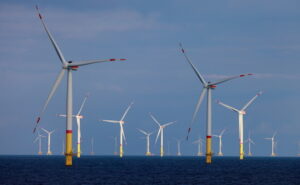The construction permits for these offshore wind farms were revoked as they would have an “unacceptable impact” on Sweden’s defense, explained Environment Minister Romina Pourmokhtari in a press conference.
The decision follows a study conducted by the Swedish Armed Forces, released by public broadcaster SVT last Friday, which revealed that these wind farm projects could significantly disrupt Sweden’s defense sensors in the Baltic. The turbines’ towers and rotating blades interfere with radar systems and cause additional underwater disturbances.
In light of the “serious security situation currently facing Sweden,” defense priorities must take precedence, emphasized Defense Minister Pål Jonson at the press conference.
Had the 13 offshore wind farms remained, they would have reduced the response time for detecting missile attacks from Russia from two minutes to one, Jonson clarified. He added that the proximity of the “heavily militarized” Russian enclave of Kaliningrad was a “key factor” in the government’s decision.
Regional tensions have escalated since Russia’s invasion of Ukraine in 2022. A new NATO military base was recently established in Rostock, northern Germany, aimed at coordinating member nations’ forces in the region in response to Russia. While renewable energy remains a priority, Sweden’s electricity consumption is expected to reach at least 300 terawatt-hours (TWh) by 2045, double the current level, according to a memorandum reviewed by AFP.
Ask me anything
Explore related questions





